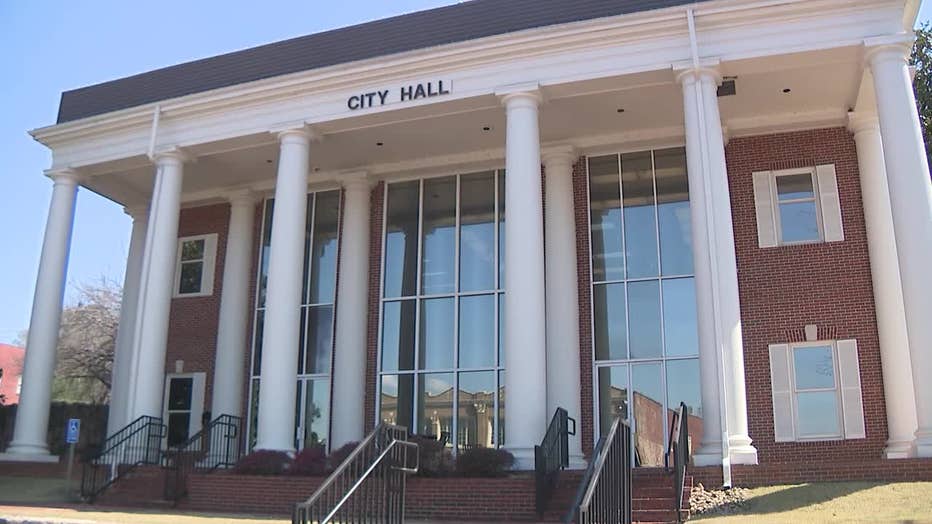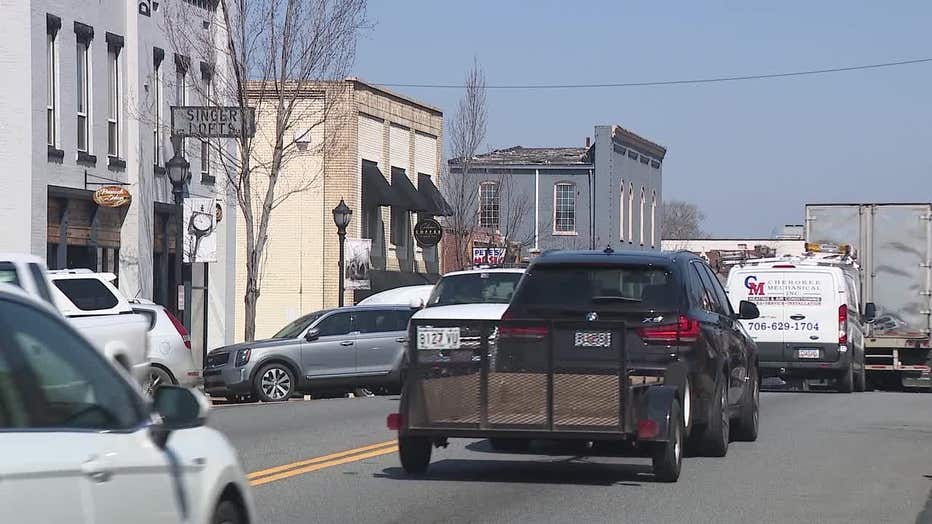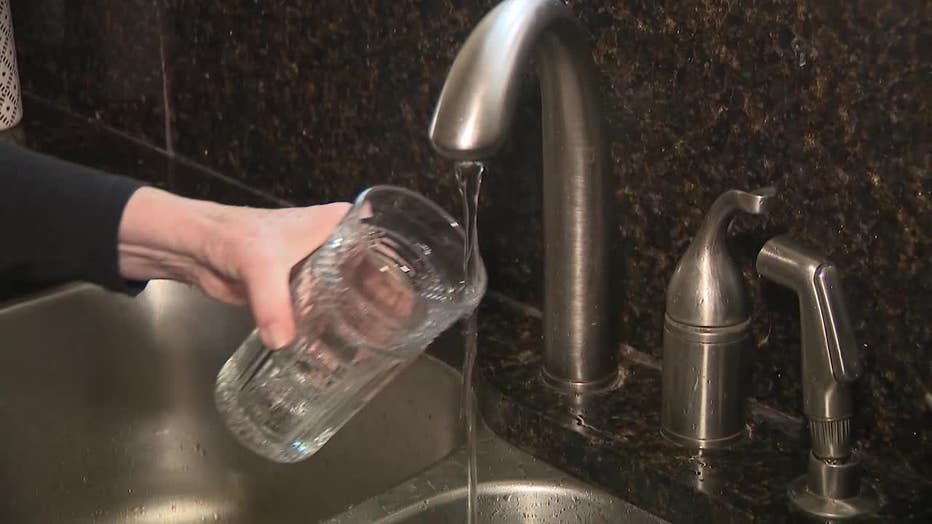Federal lawsuit targets north Georgia city over water pollution
Calhoun sued over forever chemicals on water
Calhoun is facing a federal lawsuit over pollution in its water. The Southern Environmental Law Center filed the suit over what is known as forever chemicals.
CALHOUN, Ga. - Northwest Georgia remains mired in legal woes related to PFAS (per- and polyfluoroalkyl substances) contamination in the water.
On March 7, the Southern Environmental Law Center filed a lawsuit in federal district court against the city of Calhoun and another defendant on behalf of the Coosa River Basin Initiative (CRBI) in, what it calls, an effort to stop PFAS pollution in Northwest Georgia.
"We are one of the most concentrated areas in the country for PFAS," Jesse Demonbreun-Chapman, Executive Director and Riverkeeper for the Coosa River Basin Initiative, told FOX 5 News.
The region is often referred to as the "carpet capital of the world" and is known for its manufacturing industry.
Forever chemical lawsuit in Georgia
In the lawsuit, CRBI alleges Calhoun's wastewater treatment plant pollutes the region by dumping PFAS upstream of a main drinking water intake on the Coosawattee River and through the contamination of groundwater, which can pollute well water.
You can read the complete lawsuit here:
"We have a city that has always had the authority and the requirement under the Clean Water Act to stop these contaminants from entering into the public sewage and, as of yet, they are not exercising that authority," Jesse Demonbreun-Chapman, Executive Director and Riverkeeper for the Coosa River Basin Initiative, told FOX 5 News.
According to Demonbreun-Chapman of CRBI, "the manufacturers that are utilizing these chemicals are sending the chemicals into the public sewer to the city of Calhoun to treat. The city of Calhoun's treatment plant does not have the technology to remove these contaminants and so, as a result, the sewage sludge, the biosolids that are left over after that treatment process are then contaminated with PFAS. Those have been land applied in multiple locations."
What is Sludge Field 11?
One such location, referred to as "Sludge Field 11," is almost directly across the street from Kit Brooks' home.
"Is that going to become famous? Sludge Field 11? Our beautiful land is going to be Sludge Field 11. That's so sad. We call it Evelyn's Eden after my mother," Kitt Brooks told FOX 5 News.
Brooks has lived on the land for decades, as have many of her family members.
"We're really ground zero," she said.

Sludge Field 11 is where the city of Calhoun dumps the sludge leftover after processing waste water.
She was horrified to learn of the contamination and has dedicated nearly all of her time since the discovery to educating and protecting herself and her loved ones.
The longtime Calhoun resident now fears showering in her own home, opting instead for the LA Fitness in Cartersville, and goes through pallets of bottled water.
"There's just this hidden threat that nobody in the public was made aware of by the people that could have told them," Demonbreun-Chapman said.
Calhoun responds to federal lawsuit
The city of Calhoun expressed disappointment with the CRBI's decision to name it as a plaintiff in the federal suit, saying in part, "this is fundamentally counter to CRBI’s stated philosophy that it enforces water claims against polluters. "

Calhoun City Hall (FOX 5)
According to the statement, the city has "filed cross claims against the polluters" following claims brought by the Moss Land Company, also named as a plaintiff in the federal lawsuit.
FOX 5 News was unable to reach the Moss Land Company for comment.
The full statement from the city of Calhoun reads:
"The Coosa River Basin Initiative (CRBI) through SELC filed a lawsuit against the City of Calhoun. CRBI chose to assert its allegations against the City—but not the polluters. This is fundamentally counter to CRBI’s stated philosophy that it enforces water claims against polluters. CRBI’s action will accomplish nothing except cost the taxpayers more money.
"Calhoun has taken a different course. It is going after the source of the problem. In response to claims brought by the Moss Land Company, Calhoun has filed cross claims against the polluters. It has asked the Gordon County Superior Court to award Calhoun damages from the polluters to compensate Calhoun for the actions it is taking—and has taken—to ensure that the public has access to safe and clean water.
"The City of Calhoun is especially disappointed with CRBI filing its lawsuit because, over the course of several months, the City has taken significant steps to address CRBI’s concerns. CRBI has chosen to be adversarial to Calhoun, instead of working as a partner with Calhoun to hold those chemical and carpet manufacturers responsible. The City will defend itself against the claims of CRBI while pressing the claims in Superior Court against the industries responsible for creating the crisis."

Downtown Calhoun (FOX 5)
Drinking water accountability
While Calhoun argues the blame lies with the polluters alone, Jesse Demonbreun-Chapman continues to request accountability.
"They need to make these carpet manufacturers take responsibility for these chemicals and treat them before they even enter the public sewer," he said.
Residents like Brooks remain committed to searching for a solution.

A federal lawsuit targets so-called "forever chemicals" in water in the city of Calhoun. (FOX 5)
She hopes her fear of an invisible threat will not force her from the land her family has called home for decades.
Brooks recently met with her doctor to request a blood test to determine if, and if so, how much, PFAS is in her blood.
"As to whether I'll even stay here or not, I don't know. I don't know," Brooks solemnly told FOX 5 News.
What are forever chemicals?

City of Calhoun (FOX 5)
According to the Environmental Protection Agency (EPA), PFAS "are a group of man-made chemicals that includes PFOA, PFOS, GenX, and many other chemicals. Examples of where PFAS can be found include cleaners, textiles, leather, paper and paints, fire-fighting foams, and wire insulation. Certain PFAS can accumulate and stay in the human body for long periods of time. There is evidence that exposure to PFAS can lead to adverse health outcomes in humans."

